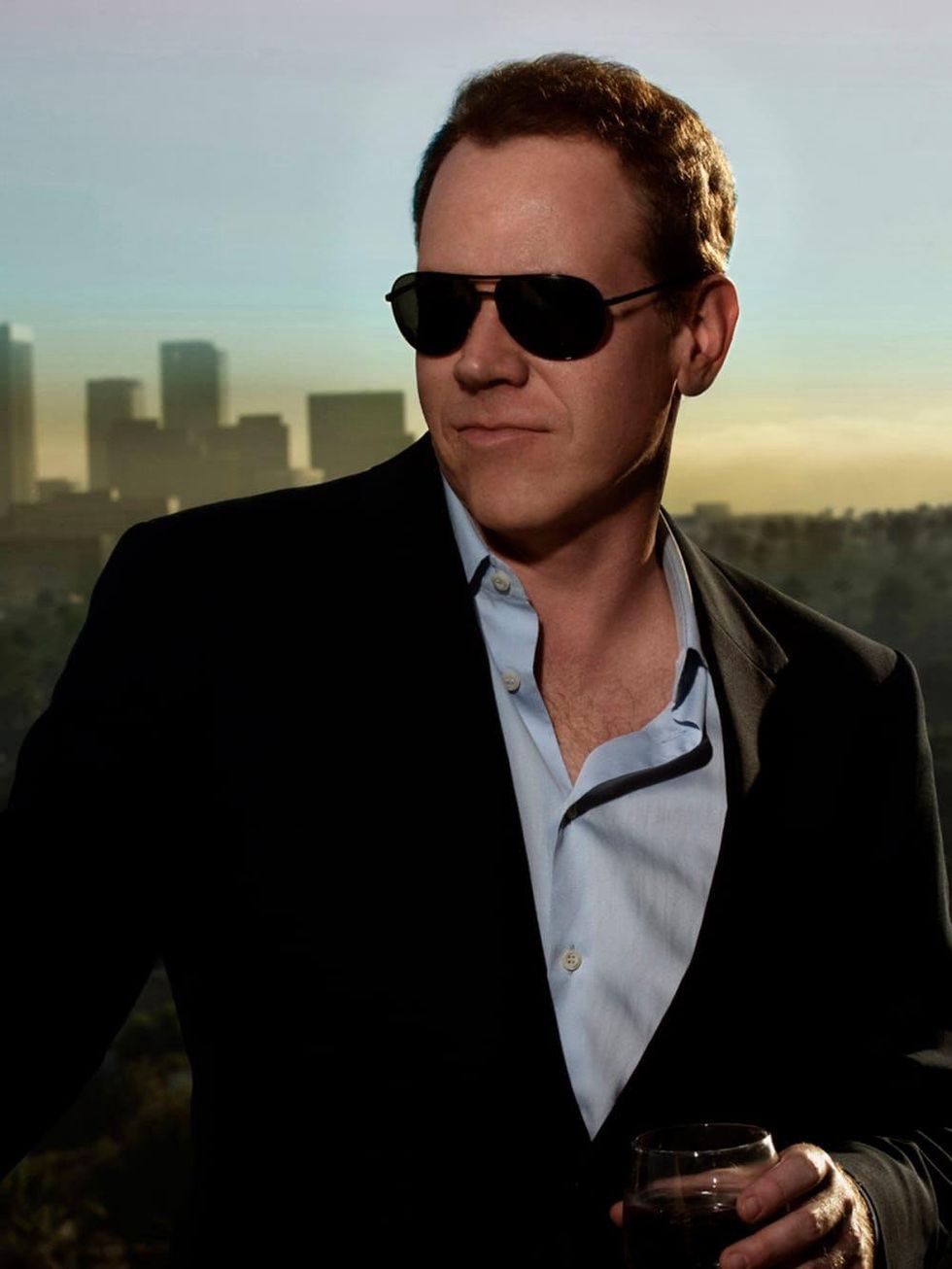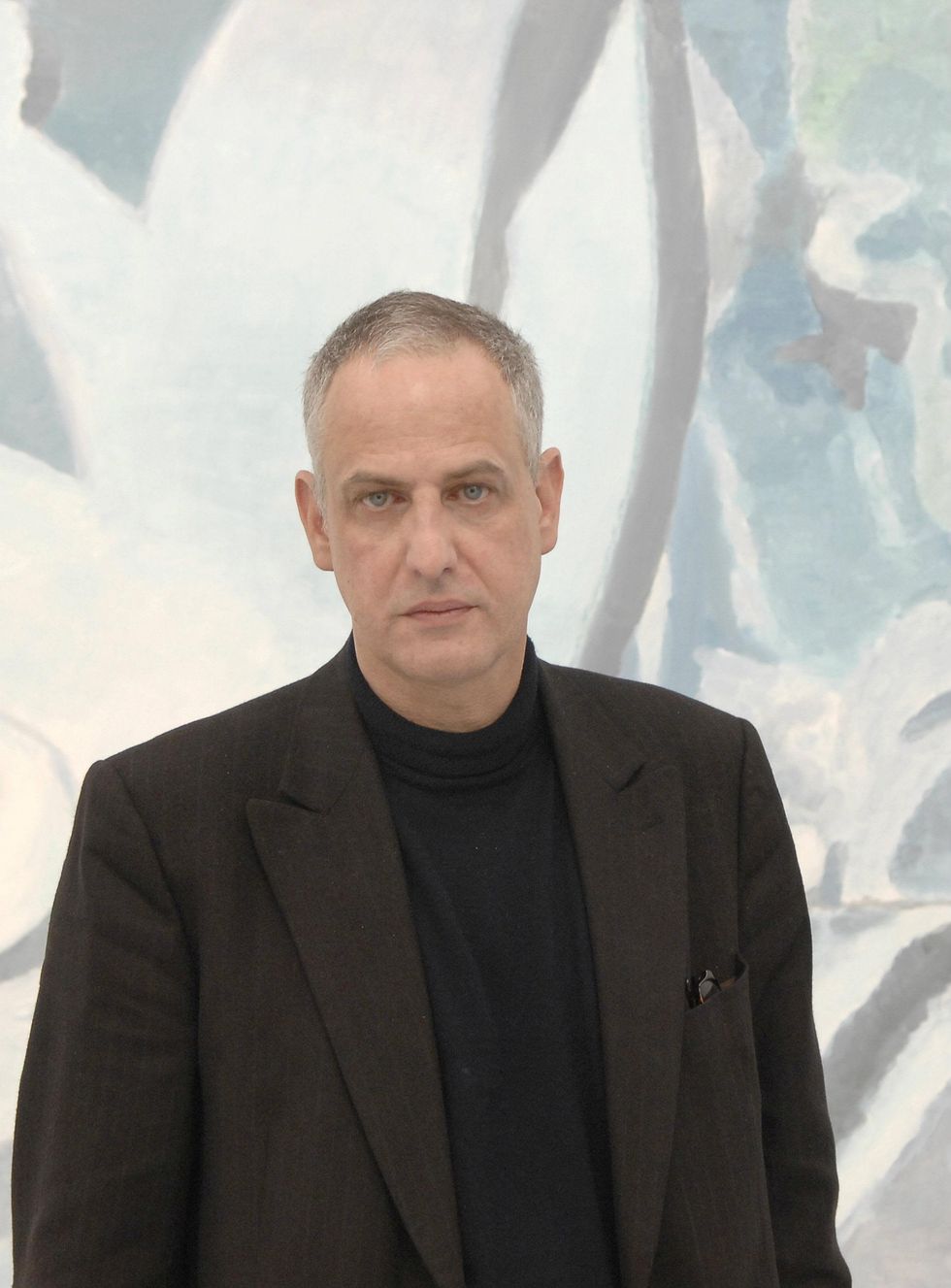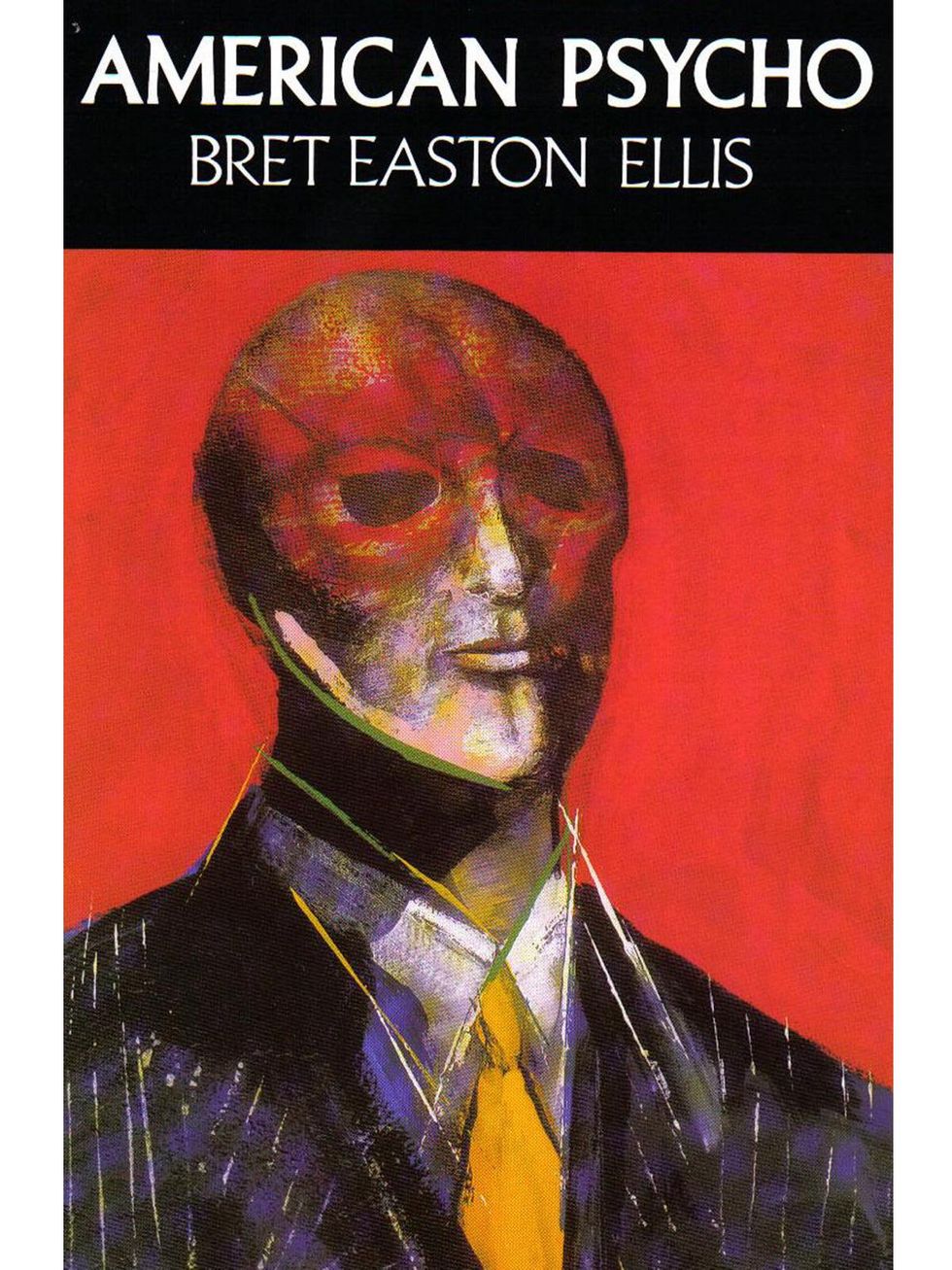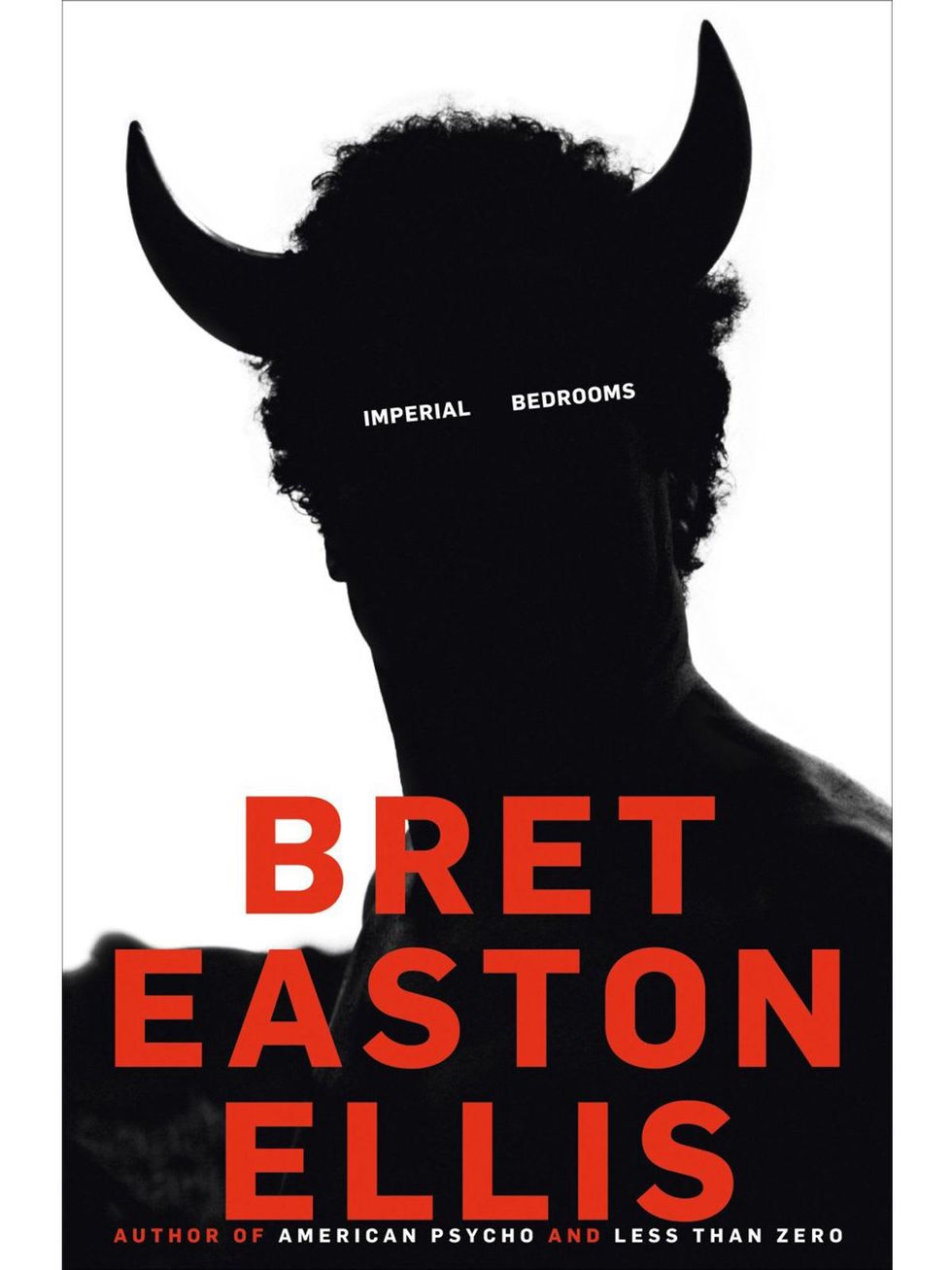Menil Time
Controversial author swears he's no Internet troll: Inside the warped mind of Bret Easton Ellis
Does the great artist ever owe his audience self portraits, and if so, how like life must they be? This was the question that struck me as I gazed at celebrated Belgian artist Luc Tuymans’s “Self Portrait, 1994” in the Tuymans exhibition Nice. at the Menil Collection, while I thought about the novels and internet presence of bestselling and ever controversial author Bret Easton Ellis.
I stood amid the sometimes distant, yet always startling portraits of Nice. because I would soon be having a conversation with Ellis about his upcoming conversation with Tuymans at the Menil.
The Menil describes this talk as a meeting between two “social and cultural provocateurs,” while touting the commonality of the two men’s “distinctively dark and dispassionate world views.” Yet, as I studied the green shaded figure in “Self Portrait” as he looked in profile away from the viewer, I kept thinking on the constant portraits of self the world now requires of artists.
Ellis seemed a bit resigned that there would always be those who think he’s “a douche” who is “just trolling on the Internet.”
Bret Easton Ellis seems to be a writer who enjoys creating versions of himself for readers and followers. He’s constantly in Internet trouble for statements he makes about everything from his objections to the possible casting of Matt Bomer in Fifty Shades of Grey to calling the Nobel Prize for literature a joke after the announcement of Alice Munro’s win. To read an interview with Ellis is to read about an interviewer who is paranoid that whatever Ellis says he will immediately contradict in the next interview.
And perhaps in the ultimate act of a writerly distorted self portraits, in his 2005 novel Lunar Park, author Bret Easton Ellis makes very bad things happen to his first-person narrator, a man named Bret Easton Ellis, author of the bestselling novels Less Than Zero and American Psycho.
Not an Internet Troll
When I talked to Ellis, I had to ask if he would consider the provocateur moniker accurate.
“I’m a real opinionated person,” he admitted. “That’s it. I feel I’m pretty authentic. I’m not out to get anybody. I don’t believe in hate speech. I do believe in free speech. I don’t believe in personally attacking people. I get a lot of flack because I have opinions that aren’t popular, but they’re only opinions.
"It’s a normal part of being human to want to look at yourself, investigate, and comment on it. Now you can also condemn that as total narcissism, but I guess it really depends."
Later in our conversation, Ellis seemed a bit resigned that there would always be those who think he’s “a douche” who is “just trolling on the Internet.” Still he insists that provoking is not a motivating force behind any of his writing.
Ellis believes if he set out to intentionally be a provocateur, it wouldn’t work. “If you’re consciously out to shock people or provoke people, it gets old so fast. I don’t operate at that level,” he explained.
At the same time, Ellis doesn’t believe in an “invisible, polite” literary persona for writers. “I don’t know why in this age when you can just express yourself, why people wouldn’t.”
Perhaps these types of ideas led Luc Tuymans to pick Ellis for this unique painter/writer conversation, which will be the first in-person meeting between these two fans of each others’ work.
Menil Curator of Modern and Contemporary Art, Toby Kamps, explaining the genesis of the event said: “This is Luc’s idea. He’s a voracious reader and — I think — is fascinated with our national psyche (or psycho, in the case of Bret Easton Ellis).”
Not an American Psycho
When I asked Ellis if he thought of his work as representing our national psyche or psycho, he wasn’t so sure.
“I feel that I write much more personal work than these kind of sweeping sociological studies," he said. "Every work that I’ve done comes from personal space, usually one of pain, something’s bothering me or I’m dreadfully obsessed over something that’s going wrong in my life, and then I begin to explore it in fiction and put it into a fictional context." He finds writing can be a kind of therapy.
Even Ellis most famous, revered (and reviled by some) novel, American Psycho, was somewhat therapeutic to write. The novel, which became a cult hit film starring Christian Bale before he was Batman and is now set to become a West End musical starring Matt Smith after he’s The Doctor, perhaps made a statement that Ellis never set out to make.
Ellis noted that many people thought the novel was some “sweeping indictment of yuppie culture,” but these many years later Ellis sees the novel as really about his “frustration as a young man entering adulthood and finding adulthood and society really false and filled with poses and mask. It’s just a book about me kicking and screaming into adulthood.”
The Artist as a Portraitist
And as Ellis spoke about how personal some of his fiction is, I flashed back to the Tuymans “Self Portrait” and had to ask Ellis if, in a way, that’s what he was doing with words instead of paint. Is the writer also a self portraitist?
“I felt that ever since I first started writing. It was a way of understanding myself,” he affirmed and went on saying, “Every book was sort of an investigation of where I was at a certain point in my life. People ask me: ‘Why haven’t you ever written a memoir?’ and I say I have, I have written a memoir.
“I think it’s normal. Why do you think probably 90 percent of pictures taken now are selfies. It’s a normal part of being human to want to look at yourself, investigate, and comment on it. Now you can also condemn that as total narcissism, but I guess it really depends on how you approach it. It’s not as if Luc as been doing hundreds of self-portraits and not as if I’m wholly writing about Bret Ellis, but it seems natural to me.”
So what does the artist owe the audience?
“Just to be an authentic person. True to themselves and true to their art. Just to be an honest artist,” was his reply.
The Bret Easton Ellis & Luc Tuymans Conversation and Book-signing begins at 6 p.m. Tuesday at The Menil. The event is sold out, but will be broadcast outdoors for guests seated on the the north lawn.




